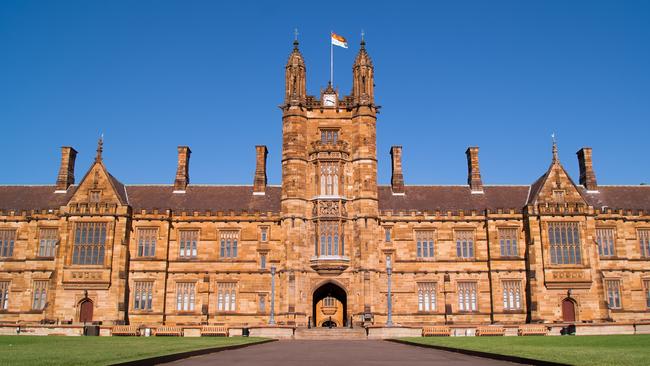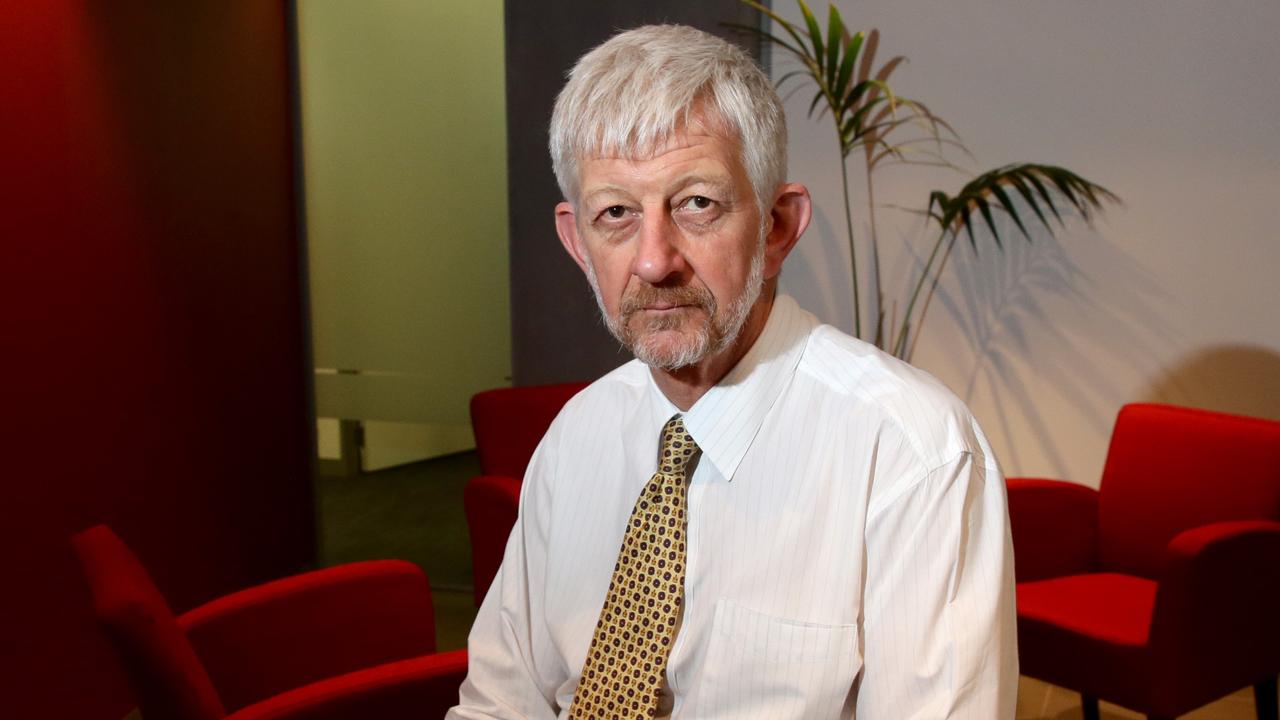University of Sydney backs litigation funders targeting its key sponsors
The University of Sydney is funnelling millions of dollars into international litigation funders which are bankrolling lawsuits against key university sponsors, an FOI request has revealed.

The University of Sydney is funnelling millions of dollars into international litigation funders that are bankrolling lawsuits against the university’s key financial partners, a Freedom of Information request has revealed.
The Australian can reveal the institution has $49.6m invested in Britain-based litigation funder Harbour, which is underwriting class actions against various large Australian corporates, including Lendlease over its share price plunge in late 2018, which occurred in part because of the delay of Sydney’s NorthConnex project.
This is despite longstanding ties between the University of Sydney and the construction giant, including a Lendlease-sponsored $10,000 sponsorship for engineering students.
The revelation comes as revenue for the nation’s litigation funding market quadruples to more than $200m, with Australia becoming the second largest forum for class-action suits, trailing only the US.
The Lendlease Bradfield scholarship is for first or second-year students, and is expected to run again next year. Lendlease also built the University of Sydney’s state-of-the-art F23 Administration Building, which houses the office of vice-chancellor Mark Scott, and was a partner of the architecture faculty’s internship program.
In 2016, the university and Lendlease were the joint recipients of a $3m commonwealth grant to undertake a collaborative research project to develop prefabricated multi-storey housing solutions.
The Menzies Research Centre in August released a report that found class actions settled between 2013 and 2018 backed by third-party litigation funders returned a median of just 51 per cent of the settlement to claimants. Meanwhile, in cases pursued by claimants without a litigation funder partner, a median of 85 per cent of the settlement was returned.
The Samuel Griffith Society released a similar paper last month calling for a crackdown on the “increasing commercialisation” of class action “lawfare” and revealing Australia’s class action and litigation funding schemes had resulted in skyrocketing costs for claimants and a huge influx of international profit-seeking litigation funders.
According to the FOI request, the University of Sydney’s investment in Harbour grew from $2.5m to $49.6m between 2019 and last year.
In addition to backing the Lendlease class action, Harbour also funded a class action against AMP, which is listed as an “Industry Research Collaborator” with the University of Sydney’s School of Architecture, Design and Planning.
The University of Sydney has also invested $22.5m into Britain-based litigation funding Balance Legal, bringing the university’s total investments in litigation funders to $72.1m.
Between them, Harbour and Balance Legal have also bankrolled class actions against Brambles, Virgin Australia, Apple, MLC, Sotheby’s and Uber.
The issue is expected to become a key topic of debate ahead of next year’s federal election.
A spokesperson told The Australian the University of Sydney invests “donations and bequests gratefully received by the university to help financially support our academic and research activities”.
“In diversified portfolios, it’s common to hold small positions in different companies that compete with each other, and we’re currently an equity holder in Lendlease through a separate Australian equities manager and also a capital provider to litigation funder Harbour,” the spokesperson said.
“Both retain discretion in their own funding and other decisions, which are taken at arm’s length to the university and our investment team, as is appropriate. Lendlease remains a valued industry partner of the university, and we appreciate the contribution they make to our student experience and knowledge exchange.”
The former Coalition government sought to crack down on class-action suits in 2020, following recommendations from an Australian Law Reform Commission inquiry, which found the number of matters funded by litigation funders grew from 40 per cent of finalised Federal Court class actions between 2008 and 2012 to 77 per cent in 2017 and 2018.
Reforms that passed parliament required litigation funders to hold an Australian financial services licence and comply with the managed investment scheme regime. The Coalition also attempted to restrict class-action funders and lawyers to a maximum 30 per cent of any payout. This proposal lapsed after the 2022 federal election.
Earlier reforms were also unwound once Labor took power, and after the Federal Court ruled in June 2022 that funded class actions were not managed investment schemes, and fell outside the Corporations Act’s regulatory scheme.





